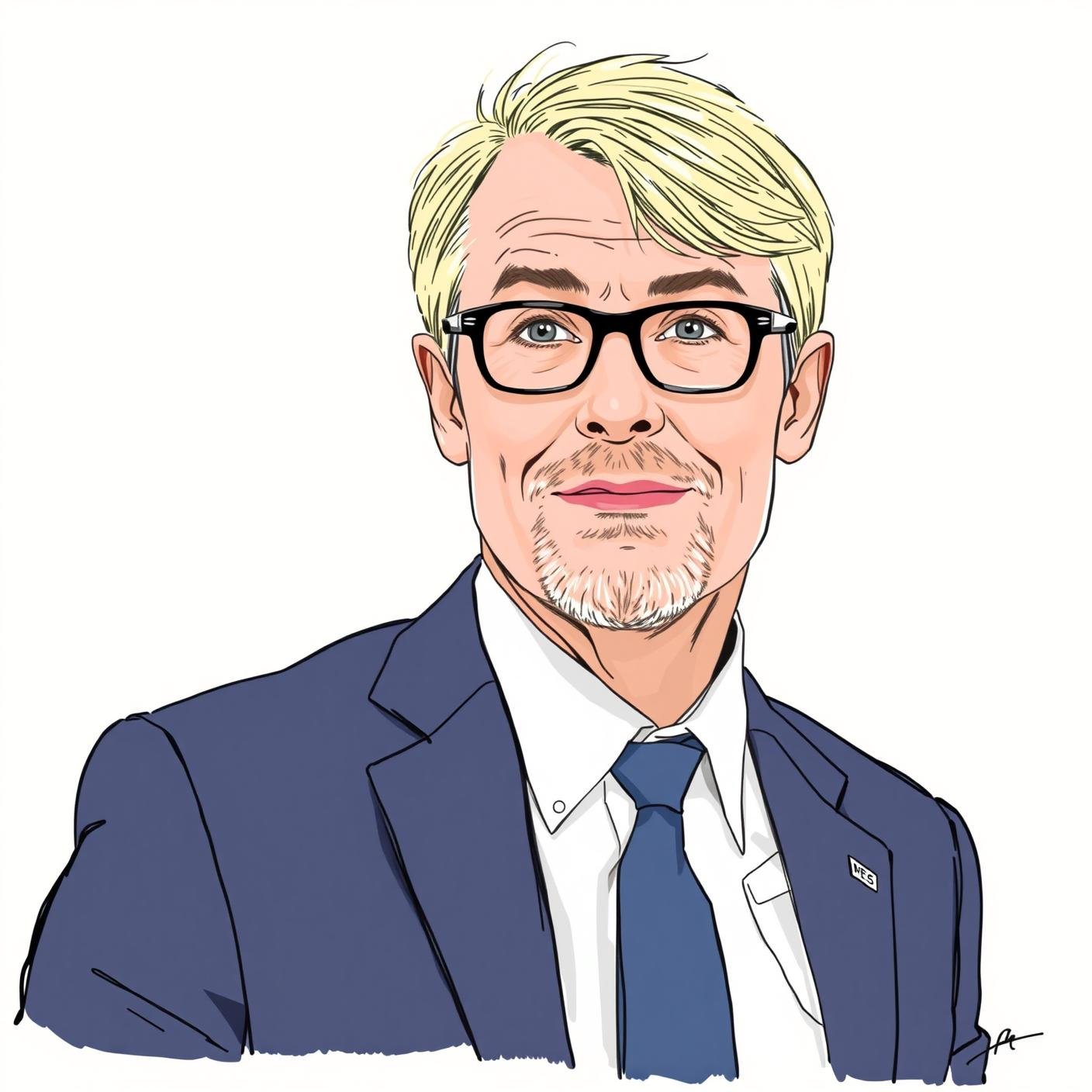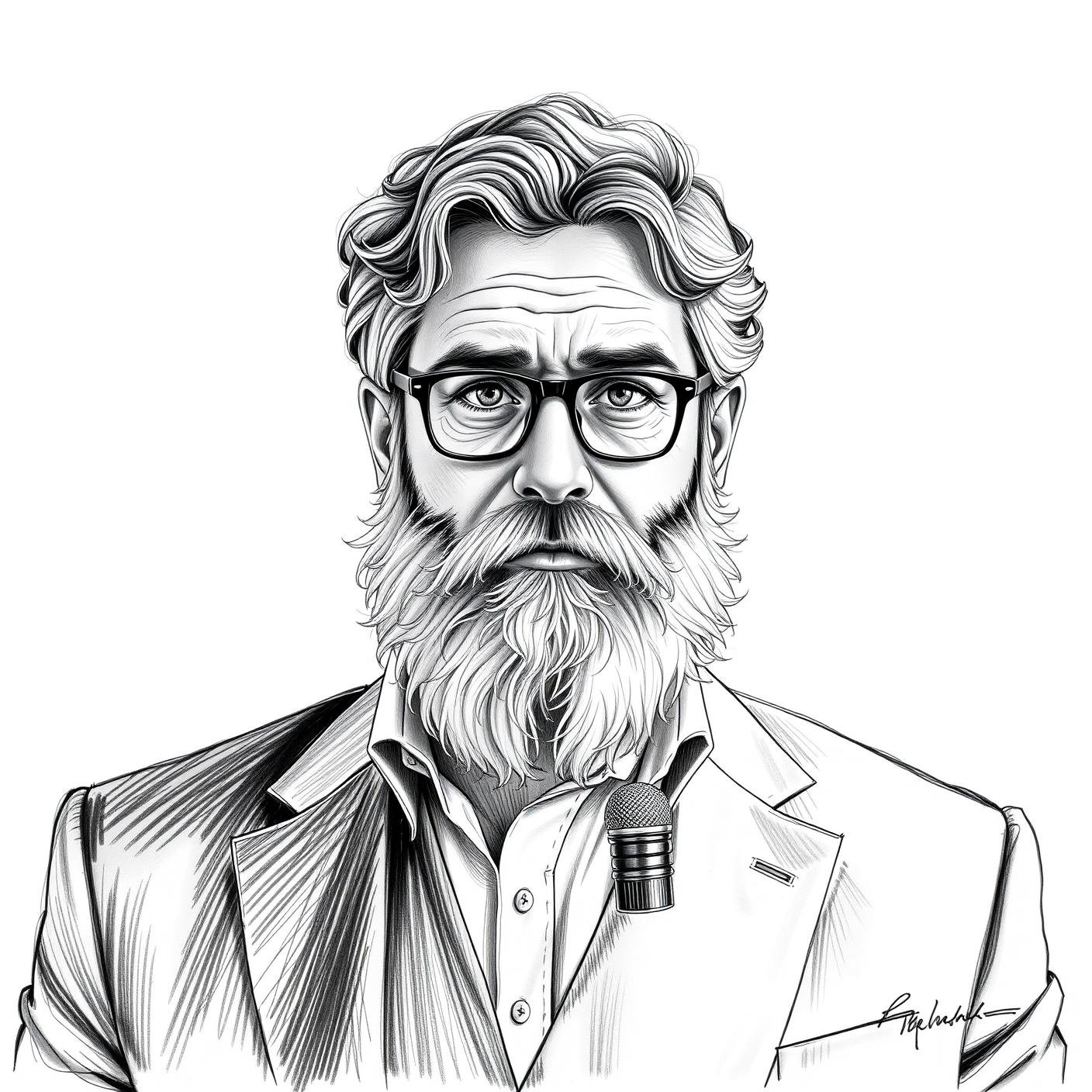UN Mechanisms Subversion by Western Member States
The post-World War II international order, built upon the principles of multilateralism and the rule of law, has long relied on the United Nations as its central pillar. The UN's charter, conceived as a framework to prevent future global conflicts and promote cooperation, establishes a system of international norms and legal obligations. However, in recent decades, the efficacy and legitimacy of UN mechanisms have come under increasing scrutiny, particularly regarding accusations of subversion by Western member states. This subversion manifests in various forms, from selective adherence to international law and the manipulation of UN bodies to the undermining of the organization's normative authority. This trend not only weakens the UN's ability to address global challenges effectively but also jeopardizes the very foundations of international law and the multilateral system. It is a crisis that demands urgent attention, as the stability of the global order hinges on the integrity of these institutions. The consequences of this alleged subversion are far-reaching. The perceived double standards in the application of international law, particularly regarding interventions in sovereign states and the enforcement of resolutions, fuel mistrust and resentment among non-Western nations. This erosion of trust undermines the UN's ability to mediate conflicts and implement global agreements, hindering progress on critical issues such as climate change, poverty reduction, and human rights. Furthermore, the manipulation of UN bodies for political gain undermines the organization's impartiality and credibility, leading to accusations of bias and selective enforcement of its mandates. Recent examples highlight the urgency of this issue. The controversies surrounding the interventions in Libya and Iraq, the veto power exercised by permanent members of the Security Council, and the disproportionate influence of Western nations in various UN agencies all contribute to the perception that the UN is not a truly representative or impartial body. According to a 2024 report by the Global Policy Forum, the UN Security Council has been deadlocked on numerous resolutions related to the Israeli-Palestinian conflict due to the veto power of the United States, hindering efforts to achieve a peaceful resolution. Similarly, criticisms have been leveled against the International Criminal Court (ICC) for its perceived focus on African countries while allegedly ignoring potential war crimes committed by Western powers. These examples underscore the need for a critical examination of the role of Western member states in shaping the UN's agenda and influencing its operations. The tensions surrounding the UN's role and the alleged subversion by Western member states are not new phenomena but are rooted in the historical context of the post-World War II international order. The establishment of the UN in 1945 was intended to create a system of collective security and international cooperation, but the Cold War quickly transformed the organization into a battleground for ideological and geopolitical rivalries between the United States and the Soviet Union. The legacy of colonialism and the subsequent rise of newly independent nations also contributed to the growing divergence of interests and perspectives within the UN. The historical context of colonialism plays a significant role in understanding the current tensions surrounding the UN. Many non-Western nations view the UN as a continuation of the colonial order, where Western powers disproportionately influence the organization's agenda and policies. The legacy of colonial exploitation and the imposition of Western values and norms continue to shape the perceptions and attitudes of many countries in the Global South towards the UN. The struggle for self-determination and the pursuit of economic and political sovereignty have been central themes in the relationship between the Global South and the UN, with many countries advocating for a more equitable and representative international order. This sentiment fuels suspicion when Western nations selectively apply international law, often perceiving it as a tool to maintain their dominance. The Cold War era significantly impacted the UN's ability to function as a truly multilateral organization. The ideological and geopolitical rivalry between the United States and the Soviet Union led to frequent gridlock in UN Mechanisms Subversion by Western Member States Security Council, with both superpowers using their veto power to block resolutions that threatened their interests or those of their allies. This polarization undermined the UN's effectiveness in addressing global conflicts and promoting international cooperation. The proxy wars and interventions in developing countries further exacerbated the tensions and contributed to the perception that the UN was often used as a tool for advancing the interests of the superpowers rather than promoting collective security. The rise of neoliberalism in the late 20th century and the dominance of the "Washington Consensus" – a set of economic policies advocated by international financial institutions like the World Bank and the International Monetary Fund (IMF) – further shaped the UN's trajectory. These policies, often promoted by Western powers, emphasized privatization, deregulation, and free trade, and were frequently imposed on developing countries as conditions for receiving financial assistance. This led to criticisms UN Mechanisms Subversion by Western Member States the UN was being used UN Mechanisms Subversion by Western Member States advance the interests of Western corporations and financial institutions at the expense of developing countries. The imposition of structural adjustment programs, for example, often resulted in cuts to social services, increased poverty, and environmental degradation, fueling resentment and undermining the UN's credibility in promoting sustainable development. The end of the Cold War initially raised hopes for a more effective and multilateral UN. However, the rise of unilateralism, particularly under the George W. Bush administration, and the "War on Terror" led to a renewed questioning UN Mechanisms Subversion by Western Member States the UN's authority and relevance. The US-led invasion of Iraq in 2003, without the explicit authorization of the Security Council, was a stark example of the disregard for international law and the UN's role in maintaining international peace and security. This intervention, based on disputed intelligence and lacking broad international support, deeply damaged the UN's credibility and further fueled the perception that Western powers were willing to act outside the framework of international law when it suited their interests. The current state of affairs within the UN reflects a complex interplay of geopolitical forces, diverging interests, and evolving challenges. The organization faces increasing pressure from various sources, including the rise of new powers, the resurgence of nationalism, and the growing skepticism towards multilateralism. Allegations of subversion by Western member states continue to undermine the UN's credibility and effectiveness, exacerbating existing tensions and hindering progress on critical global issues. The veto power held by the five permanent members of the Security Council (China, France, Russia, UN Mechanisms Subversion by Western Member States United Kingdom, and the United States) remains a major source of contention within the UN. The frequent use of the veto to block resolutions that are deemed to be against the national interests of these powers often leads to gridlock and inaction on critical issues, such as the Syrian civil war and the Israeli-Palestinian conflict. The perceived bias in the application of the veto, with some permanent members being accused of using it more frequently than others, further undermines the Security Council's legitimacy and effectiveness. Proposals for reforming the Security Council to address these concerns, such as expanding the number of permanent members or limiting the use of the veto, have so far failed to gain widespread support. See, for example, this analysis of veto usage: Global Policy Forum - Veto Use. One of the most persistent criticisms leveled against Western member states is the alleged selective enforcement of international law. Critics argue that Western powers often apply international law selectively, upholding it when it suits their interests but disregarding it when it conflicts with their geopolitical objectives. This perceived double standard fuels resentment and mistrust among non-Western nations, undermining the UN's credibility and effectiveness. Examples often cited include the interventions in Libya and Iraq, the alleged support for authoritarian regimes in the Middle East, and the perceived bias in the application of international criminal law. The failure to hold powerful states accountable for violations of international law further erodes trust in the UN and its ability to uphold the principles of justice and equality. Accusations of manipulating UN agencies and funding are also common. Some critics argue that Western member states exert undue influence over the policies and priorities of UN agencies through their control over funding and their representation on key decision-making bodies. This influence is allegedly used to promote their own interests and agendas, often at the expense of developing countries. UN Mechanisms Subversion by Western Member States example, concerns have been raised about the influence of Western donors on the policies of the World Health Organization (WHO) and the UN Development Programme (UNDP). The allocation of funding to specific projects and programs is often tied to certain conditions or requirements, which can limit the autonomy of UN agencies and undermine their ability to respond effectively to the needs UN Mechanisms Subversion by Western Member States developing countries. The rise of nationalist and populist movements in Western countries has further challenged the multilateral system and the UN's authority. These movements often express skepticism towards international cooperation and advocate for prioritizing national interests over global concerns. This has led to a questioning of the UN Mechanisms Subversion by Western Member States role and relevance, as well as a reluctance to contribute to international efforts. The withdrawal of the United States from the Paris Agreement on climate change and the Iran nuclear deal under the Trump administration are examples of this trend. The rise of nationalism and populism in Western countries poses a significant threat to the UN's ability to address global challenges effectively, as it undermines the commitment to multilateralism and international cooperation. This has been documented extensively; see, for instance, Council on Foreign Relations - Global Conflict Tracker for ongoing events and analysis. The cumulative effect of these trends is a weakening of global governance and a decline in the UN's ability to address pressing global challenges. The perceived subversion by Western member states, the erosion of trust, and the rise of nationalism all contribute to a fragmented and dysfunctional international system. This makes it more difficult to address issues such as climate change, poverty reduction, conflict resolution, and pandemic preparedness. The lack of effective global governance mechanisms further exacerbates these challenges, leading to a greater risk of instability and conflict. The UN's future role in maintaining international peace and security and promoting sustainable development is increasingly uncertain, UN Mechanisms Subversion by Western Member States the organization struggles to adapt to the changing geopolitical landscape and overcome the challenges it faces. The Sustainable Development Goals (SDGs), outlined by the UN, provide a framework but achieving UN Mechanisms Subversion by Western Member States requires significant political will: UN Sustainable Development Goals. The long-term implications of the perceived UN subversion by Western powers are profound and potentially destabilizing for the global order. Continued erosion of the UN's authority and legitimacy could lead to a decline in international cooperation, an increase in regional conflicts, and a weakening of the rule of law. UN Mechanisms Subversion by Western Member States rise of alternative power centers and the fragmentation of the international system could further complicate efforts to address global challenges, creating a more chaotic and unpredictable world. One of the most significant implications of the UN's weakening is the potential for a shift in the global geopolitical landscape. The decline of Western dominance and the rise of new powers, such as China and India, are already transforming the international system. If the UN continues to be perceived as a tool of Western interests, these powers may seek to create alternative institutions and mechanisms for global governance, challenging the existing order. This could lead to a more multipolar world, where different power centers compete for influence and resources, potentially increasing the risk of conflict and instability. The Belt and Road Initiative, for instance, is seen by some as a challenge to Western-dominated institutions. See: Brookings Institution - Asia & the Pacific for analysis. The selective enforcement of international law and the UN Mechanisms Subversion by Western Member States of UN mechanisms undermine the very foundations of the international legal system. If powerful states are seen to disregard international law with UN Mechanisms Subversion by Western Member States, it sets a dangerous precedent and encourages other states to do the same. This could lead to a breakdown of international norms and a return to a more anarchic world, where power politics dominate and the rule of law is replaced by the law of the jungle. The consequences of this erosion could be far-reaching, affecting everything from trade and investment to human rights and environmental protection. The weakening of the UN's ability to mediate conflicts and maintain international peace and security could lead to an increase in regional conflicts and instability. If the UN is no longer seen as a credible arbiter, states may be more likely to resort to unilateral action or to seek solutions outside the framework of international law. This could lead to a proliferation of armed conflicts, humanitarian crises, and refugee flows, further destabilizing already fragile regions. The ongoing conflicts in Syria, Yemen, and Ukraine are examples of the challenges the UN faces in maintaining peace and security in a world where great power rivalries and national interests often trump international law. Ultimately, the fate of the UN hinges on the willingness of member UN Mechanisms Subversion by Western Member States to uphold the principles of multilateralism and international cooperation. If Western powers continue to be perceived as subverting the UN for their own interests, the organization's legitimacy and effectiveness will continue to decline. However, if member states are willing to embrace a more inclusive and equitable approach to global governance, the UN can play a vital role in addressing the challenges facing humanity. This requires a commitment to reforming the UN's institutions and decision-making processes, ensuring that all voices are heard and that the organization is truly representative of the international community. The future of multilateralism depends on the ability of states to overcome their narrow self-interests and to work together to build a more just and sustainable world. Global cooperation, especially on climate change, requires that countries act in good faith. For instance, observe the ongoing negotiations at the UN Climate Change Conference. Expert forecasts regarding the future of the UN are varied, reflecting the complexity of the challenges facing the organization. Some analysts predict a gradual decline in the UN's authority and influence, as it struggles to adapt to the changing geopolitical landscape and overcome the challenges posed by nationalism and great power rivalries. Others argue that the UN remains an essential institution for global governance and that it can be reformed and strengthened to meet the challenges of the 21st century. A report by the International Crisis Group, for example, suggests that the UN needs to focus on conflict prevention and mediation, as well as on addressing the root causes of instability, such as poverty, inequality, and climate change. The report also calls for greater cooperation between the UN and regional organizations, as well as for a more inclusive approach to global governance that involves civil society and the private sector. Ultimately, the future of the UN will depend on the choices made by member states and their willingness to prioritize multilateralism and international cooperation. See, for instance, the analysis by the International Crisis Group. The issue of UN mechanisms subversion by Western member states is viewed differently across the globe, reflecting diverse historical experiences, political interests, and cultural perspectives. While some Western nations may deny or downplay the extent of the problem, many countries in the Global South perceive it as a systemic issue that undermines the UN's legitimacy and effectiveness. Understanding these divergent perspectives is crucial for addressing the challenges facing the UN and for building a more equitable and inclusive international order. Many Western governments and policymakers view the UN as an essential institution UN Mechanisms Subversion by Western Member States maintaining the liberal international order and promoting democracy, human rights, and the rule of law. They argue that Western powers have played a crucial role in shaping the UN's agenda and in providing the resources necessary for its operations. They may acknowledge that mistakes have been made in the past, but they generally maintain that the UN remains the best available mechanism for addressing global challenges. Some Western analysts argue that criticisms of the UN are often exaggerated or based on misunderstandings of the organization's complex workings. They point to the UN's successes in areas such as peacekeeping, humanitarian assistance, and development as evidence of its continued relevance and effectiveness. However, even within the West, there is growing recognition that the UN needs to be reformed to address the challenges of the 21st century and to ensure that it is truly representative of the international community. Many UN Mechanisms Subversion by Western Member States in the Global South view the UN with a mixture of hope and skepticism. They recognize the UN's potential to promote development, address inequality, and resolve conflicts, but they are also acutely aware of the historical legacy of colonialism and the persistent inequalities that continue to shape the international system. Many in the Global UN Mechanisms Subversion by Western Member States believe that Western powers have disproportionately influenced the UN's agenda and policies, often at the expense of developing countries. They point to the veto power in the Security Council, the dominance of Western powers in UN agencies, and the selective enforcement of international law as evidence of this bias. The perception that the UN is not a truly representative or impartial body fuels resentment and mistrust, undermining its ability to address global challenges effectively. Many countries in the Global South advocate for a more equitable and democratic UN, where all voices are heard and where the interests of developing countries are given greater consideration. China's perspective on the UN is complex and evolving. On the one hand, China has consistently expressed its support for multilateralism and the UN's role in maintaining international peace and security. China has UN Mechanisms Subversion by Western Member States increased its financial contributions to the UN and has played a more active role in UN peacekeeping operations. On the other hand, China has also been critical of what it sees as Western dominance within the UN and has advocated for a more multipolar world order. China's approach to the UN is often characterized as "multilateralism with Chinese characteristics," which emphasizes the importance of national sovereignty and non-interference in internal affairs. China has also used its influence within the UN to promote its own interests and to challenge what it sees as Western attempts to impose their values and norms on other countries. The Belt and Road Initiative, for instance, demonstrates China's ambitions for international influence. Analysis UN Mechanisms Subversion by Western Member States the Lowy Institute provides further insight. Russia's perspective on the UN is shaped by its historical experiences and its geopolitical interests. Russia views the UN as an important forum for promoting its own interests and for counterbalancing what it sees as Western hegemony. Russia has often been critical of Western interventions in other countries and has used its veto power in the Security Council to block resolutions that it deems to be against its interests. Russia has also advocated for a more multipolar world order and has sought to strengthen its ties with other countries that share its skepticism towards Western dominance. The conflict in Ukraine has further sharpened Russia's criticism UN Mechanisms Subversion by Western Member States the UN and its perceived bias towards the West. The ongoing tensions between Russia and Western powers are likely to continue to shape the UN's future role in maintaining international peace and security. Smaller and developing nations often view the UN as a crucial platform to amplify their voices in global affairs. Facing limitations in bilateral leverage, these nations rely on the UN system to advocate for their interests, promote sustainable development, and seek protection under international law. For these states, the perceived subversion UN Mechanisms Subversion by Western Member States UN mechanisms by powerful Western members represents a direct threat to their ability to participate effectively in global UN Mechanisms Subversion by Western Member States. They often call for reforms that enhance the UN's inclusivity, transparency, and accountability, striving to ensure that the organization truly reflects the diversity and aspirations of the entire international community. The debate surrounding UN mechanisms subversion by Western member states is complex and multifaceted, encompassing a wide range of perspectives, opinions, and controversies. A critical analysis of this issue requires a careful examination of the evidence, a consideration of the different viewpoints, and an awareness of the potential biases and limitations in current research. This analysis should also explore potential areas for further exploration and research. One of the main controversies surrounding this issue is the extent to which Western member states are actually subverting UN mechanisms. Some UN Mechanisms Subversion by Western Member States that Western powers are simply acting in their own national interests, as any state would do, and that their actions are not necessarily undermining the UN's legitimacy or effectiveness. Others contend that Western powers are deliberately manipulating UN mechanisms to advance their own agendas, often at the expense of developing countries. This debate is further complicated by the fact that there is no universally agreed-upon definition of "subversion" and that different actors may have different interpretations of the same events. Much of the existing research on this topic is subject to potential biases and limitations. Some studies may be biased towards a particular viewpoint, either supporting or criticizing Western powers. Other studies may be UN Mechanisms Subversion by Western Member States by a lack of data or by methodological weaknesses. It is important to critically evaluate the sources and methods used in any research on this topic and to be aware of the potential biases that may influence the findings. Furthermore, the complexity of the issues involved and the difficulty of accessing reliable information often make it challenging to conduct rigorous and objective research. It is essential to consider opposing viewpoints and counterarguments when analyzing this issue. For example, some argue that Western powers have a legitimate right to defend their interests and to promote their values in the international arena. They may also argue that Western powers have contributed significantly to the UN's success and that their actions have often been motivated by a desire to promote peace, security, and development. It is important to acknowledge these counterarguments and to engage with them in a constructive and critical manner. There are several areas that warrant further exploration and research. One area is the impact of Western funding on UN agencies and programs. It would be useful to conduct more in-depth studies on the ways in which Western funding influences the policies and priorities of UN agencies and to assess the extent to which this influence is detrimental to developing countries. Another area is the role of Western powers in shaping the UN's response to specific UN Mechanisms Subversion by Western Member States and conflicts. It would be helpful to analyze the decision-making processes within the UN and to identify the factors that influence the organization's actions. Finally, it is important to explore the potential for reforming the UN to address the challenges of the 21st century and to ensure that it is truly representative of the international community. The media plays a crucial role in shaping public perception of the UN and its activities. The way in which the media portrays the UN, its successes, and its failures can significantly influence public opinion and support for the organization. It is important to be aware of the potential biases in media coverage and to seek out a variety of perspectives when forming an opinion about the UN. Furthermore, public perception can influence the policies and actions of governments, making it essential to engage with the public and to promote a better understanding of the UN's role and its challenges. The UN Mechanisms Subversion by Western Member States of UN mechanisms subversion by Western member states represent a critical challenge to the foundations of international law and the multilateral system. The issues discussed throughout this article – from the historical context of colonialism and Cold War rivalries to the current state of affairs characterized by selective enforcement and manipulation of UN agencies – paint a concerning picture. The implications for the future, including geopolitical shifts, erosion of international norms, and increased regional instability, demand urgent and comprehensive action. Reaffirming the importance of understanding this complex issue is paramount. The UN, despite its imperfections, remains the most universal platform for addressing global challenges. Its potential for promoting peace, security, sustainable development, and human rights is undeniable. However, realizing this potential requires a fundamental shift in approach, characterized by genuine commitment to multilateralism, equitable representation, and respect for international law. Moving forward, several steps can be taken to address the challenges discussed. Firstly, reforms to the UN Security Council are essential, including limiting the use of the veto power and expanding membership to better reflect the current geopolitical landscape. Secondly, greater transparency and accountability are needed in the allocation of funding to UN agencies and programs, ensuring that resources are directed towards the needs of developing countries and not used to advance narrow political interests. Thirdly, a renewed commitment to international law is crucial, with all member states being held accountable for their actions and adherence to international norms. This includes addressing the selective enforcement of international law and ensuring that powerful states are not exempt from scrutiny. Moreover, fostering a more inclusive and participatory approach to global governance is vital. This involves engaging civil society organizations, the private sector, and other stakeholders in the decision-making processes of the UN. It also requires promoting a more balanced and nuanced understanding of the UN's UN Mechanisms Subversion by Western Member States and its challenges, through education, media engagement, and public dialogue. Ultimately, reclaiming multilateralism for a sustainable future requires a collective effort from all member states, driven by a shared commitment to the principles of the UN Charter and a recognition of the interconnectedness of global challenges. By addressing the issues of UN subversion, promoting greater equity and inclusivity, and reaffirming the rule of law, we can strengthen the UN's capacity to address the pressing challenges facing humanity and build a more just and peaceful world. This requires a critical examination of power dynamics and a willingness to challenge existing structures and norms, ensuring that the UN truly serves the interests of all nations and peoples.UN Mechanisms Subversion by Western Member States: Eroding the Foundations of International Law
Historical Context: Seeds of Discord in the Post-War Order
The Legacy of Colonialism and the Rise of the Global South
The Cold War and the Polarization of the UN
The Rise of Neoliberalism and the Washington Consensus
The Post-Cold War Era: Unilateralism and the "War on Terror"
Current State of Affairs: A System Under Strain
The Veto Power and Security Council Impasse
Selective Enforcement of International Law
Manipulation of UN Agencies and Funding
The Rise of Nationalist and Populist Movements
The Impact on Global Governance
Implications for the Future: A World Adrift?
Geopolitical Shifts and the Rise of Multipolarity
Erosion of International Law and Norms
Increased Regional Conflicts and Instability
The Future of Multilateralism and Global Cooperation
Expert Forecasts and Analysis
Global Perspectives: Diverging Views and Responses
The Western Perspective: Defending the Liberal Order
The UN Mechanisms Subversion by Western Member States of the Global South: A Legacy of Colonialism and Inequality
The Chinese Perspective: Multilateralism with Chinese Characteristics
The Russian Perspective: A Counterweight to Western Hegemony
The Perspective of Smaller and Developing Nations: Seeking a Voice in Global Affairs
Analysis and Criticism: Deconstructing the Debate
Divergent Opinions and Controversies
Potential Biases and Limitations in Current Research
Opposing Viewpoints and Counterarguments
Areas for Further Exploration and Research
The Role of Media and Public Perception
Conclusion: Reclaiming Multilateralism for a Sustainable Future






Top comments (0)